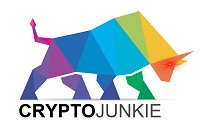Pink Sherbet Photography from USA / CC BY
For the second week in a row, a tech company more than doubled in value upon its stock market debut.
Two weeks ago, it was Chinese cloud software developer Agora Inc. (NASDAQ: API), surging 150% in its first day of trading.
And last Thursday, insurance-tech company Lemonade jumped 139% on its first day. Today, it already stands 175% higher.
[finviz ticker=LMND]Tech IPOs have long been criticized for allowing investment bankers to hand over underpriced stock to large public money managers, who often enjoy immediate and massive pops before ordinary investors are able to participate.
But investing in the right tech stocks that go public can still be wildly profitable for individual investors in the three months following the IPO.
Just take a look at what Beyond Meat Inc. (NASDAQ: BYND) did last year…
After opening to the public at $46 on its IPO date, the stock soared 420% to an all-time high of $239 per share just 85 days later.
GoPro Inc. (NASDAQ: GPRO) did the same thing in 2014…
After IPO-ing to the public for $24 per share, the stock popped 308% to $98 just 96 days later.
Since making those all-time highs just three months after their IPOs, however, shares of each company are now down considerably.
BYND is down 41% and GPRO is has dropped an astounding 95% to date.
So, will Lemonade initially prosper only to suffer a similar fate?
Let’s take a look…
What Lemonade Does
Lemonade Inc. (NYSE: LMND) is an American property and casualty insurance company founded in 2015 by Daniel Schreiber (former president of Powermat) and Shai Wininger (co-founder of Fiverr).
It’s worth noting that Dan Ariely, a psychology and behavioral economics professor and author of the popular book Predictably Irrational, joined the company as the Chief Behavioral Officer in 2017.
Headquartered in New York City, Lemonade offers renters and home insurance policies for homes, apartments, co-ops and condos in many US states. It also offers content and liability policies in Germany and the Netherlands.
Lemonade Inc. is backed by prominent venture capitalists that include Google Ventures, Sequoia Capital, Japanese tech investor SoftBank, and more.
Of the $480 million Lemonade has raised in funding, $420 million of it came from SoftBank.
Why Lemonade Is Different
What makes Lemonade wildly different from its competitors is that the company is powered by AI and driven by social good.
The company delivers insurance policies and handles claims entirely online through desktop and mobile applications.
That’s right.
Instead of hiring insurance brokers, customer service representatives, etc. who typically take months to process each insurance claim, Lemonade built chatbots driven by its proprietary artificial intelligence technology.
So, when something happens to one of its customers, Lemonade is able to pay out claims incredibly fast.
The company’s use of technology, data, and machine learning has produced a meaningfully differentiated product that provides quotes in minutes and complete claims in seconds.
In its “claim to fame” case, Lemonade once granted a payout for a stolen Canada Goose jacket in three seconds – a world record.
Lemonade is able to operate at that speed thanks to the 1,700 unique data signals is gathers across each customer onboarding.
In a $5 trillion industry in which 93% of homeowners’ insurance policies are still sold by agents, Lemonade’s technology and social mission stands out.
Leftover money that the company doesn’t need to pay out in claims goes to nonprofits of the customers’ choice.
This is done at the firm’s annual “Giveback” event.
Lemonade by the Numbers
As of fiscal Q1 2020, Lemonade grew its revenue 138% year-over-year. This is especially impressive given the disruptive arrival of COVID-19.
But expenses for the firm have also mounted, resulting in deepening losses. In 2018, Lemonade found itself $53 million in the red. Just one year later, the deficit grew to $108.5 million.
The company does have a smart approach for mitigating risk, however – which is what insurance is all about.
In the case of a catastrophic event, a poorly run insurer could find itself on the hook for millions worth of damages – causing a default.
That’s one of the reasons insurers turn to reinsurance. With reinsurance, a company can send off a portion of premiums in exchange for passing the risk to another company.
In pursuit of stable gross margins, Lemonade takes this to another level.
Through its reinsurance arrangements, Lemonade eliminates risk on 75% of their policies. The company also has a maximum individual payout of $125,000.
Lemonade loses upside in the process, but the effect on gross margin stability is meaningful: Based on the company’s risk modeling, gross margins should only vary by about 3% in 95 out of 100 years.
The Bottom Line for LMND Stock
Right now, investors are trying to determine for themselves if Lemonade is a tech company dressed as an insurance business…
Or an insurance business dressed as a tech startup.
The company would like you to believe the former, at least when it comes to its huge $4.3 billion valuation.
That’s still a relatively steep price to pay for a company that did $67.3 million in 2019 revenue.
But taking 2020’s numbers, Lemonade appears to be on a $104.8 million annual run rate. That implies a revenue multiple of 14.3x.
That’s a markup a fast-growing SaaS (Software as a Service) company might receive, but Lemonade is not a SaaS business. Rather than 80%–90% gross margins, Lemonade’s margins are about 18%.
While there’s room for them to improve margins in the future, Lemonade is a long way from the capital efficiency and reliability of a pure software play.
Over the next 84 days, it’s certainly possible to see LMND grow 420% like BYND did last year or 308% like GPRO did back in 2014.
But investors should be aware of Lemonade’s “lockup period” expiring 90 days from its IPO.
That’s when institutional shareholders are allowed to sell the LMND stock they bought last Thursday.
If Lemonade does continue to run towards a $10 billion market cap over the next three months (or $186 per share), I wouldn’t be surprised to see a 50% correction back towards $93 per share until it improves its margins and grows towards profitability.







